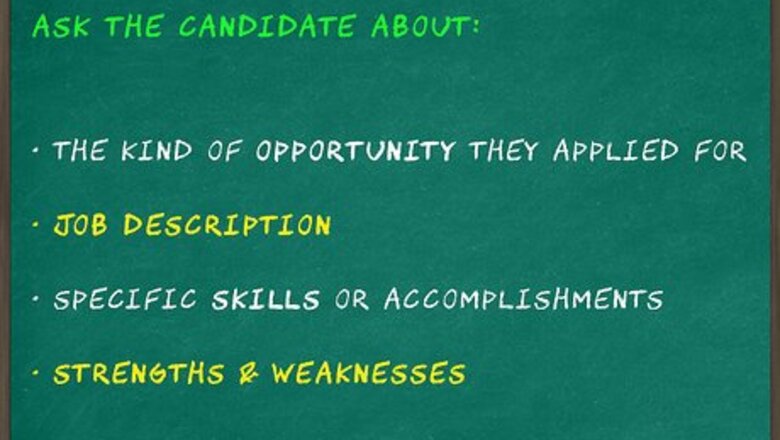
views
Preparing Answers in Advance
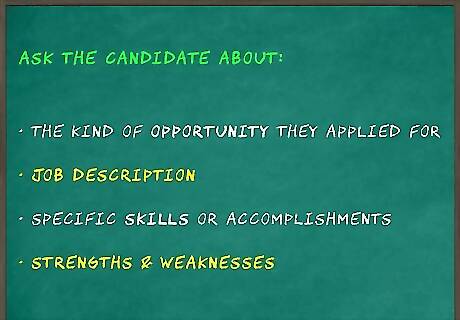
Ask the candidate for information about the job before the reference check, if possible. If someone asks you to provide a reference for them, get as much information about their goals as possible. Inquire about what kind of opportunity the candidate applied for, and ask them to give you the job description, if possible. You'll be best equipped to portray them as an ideal candidate if you know what the job is looking for.

Ask if they would like you to focus on anything in particular. A candidate might ask for a reference with the hope that you will give them credit for specific skills or accomplishments. For instance, if a former employee learned bookkeeping skills while working for your company, they might want you to focus on that point. Ask the candidate what they would like you to narrow in on when providing a reference for you.
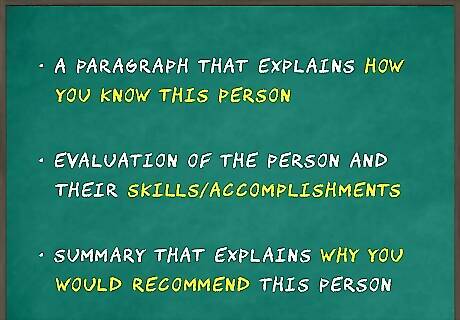
Make sure that there are no details you should avoid. The candidate you are endorsing may not want a potential employer, landlord, or other individuals to know certain details about their personal or professional background. Knowing what to avoid will make it easier to answer reference questions without awkwardness or worry.

Prepare a concise and favorable description of the candidate. During a reference check, you will almost certainly be asked to describe the person you are being asked about. To avoid being put on the spot, think ahead about the best way to summarize their strengths and skills. Preparing this in advance will allow you to answer more confidently and sound more convincing.
Providing a Professional Reference
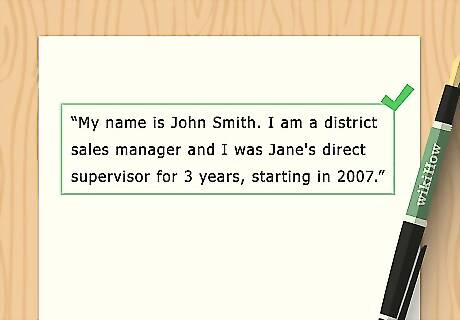
Introduce yourself and your relationship to the candidate. Introduce yourself by stating your full name. Outline the qualifications that make you a good reference. Establish how you know the candidate and for how long you have known them. For example, say something like, "My name is John Smith. I am a district sales manager and I was Jane's direct supervisor for 3 years, starting in 2007."

Provide concrete examples of the candidate's skills in action. Instead of listing a candidate's skills, describe how those skills were reflected in the person's actions. Give specific examples of how the candidate used their expertise to solve a problem or improve their workplace. You may be asked to do so directly, or asked a more general question that you can elaborate on. For instance, if you want to highlight a candidate's organizational skills, describe how they implemented a new catalogue system for office files to make documents easier to access.
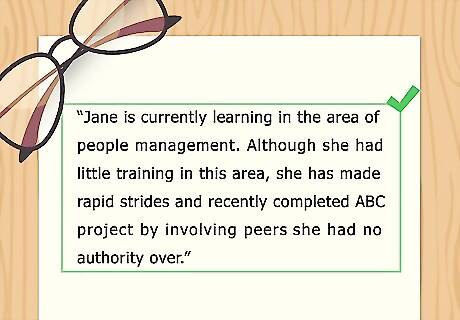
Describe the candidate's weaknesses within the context of self-improvement. You will certainly be asked to list some of the candidate's negative qualities or shortcomings. Answer this question honestly, but frame this answer within the larger picture of their work to improve. This is the best way to retain your credibility without throwing the candidate under the bus. For instance, note that the candidate had an issue with meeting deadlines, so they streamlined their work habits to remedy the problem.
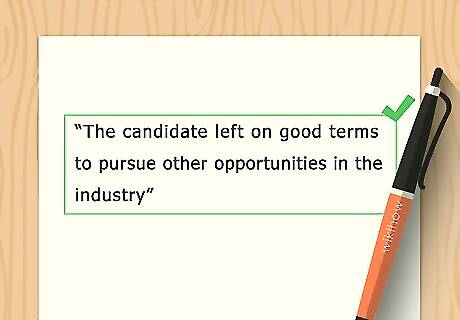
Be honest and diplomatic about why the candidate no longer works with you. Answer the question of why the candidate left your organization concisely and factually. Do not embellish the story or add personal opinions to it. Note that this question was almost certainly asked of the candidate themselves in their interview, so you must be truthful. For instance, say something like, "The candidate left on good terms to pursue other opportunities in the industry."
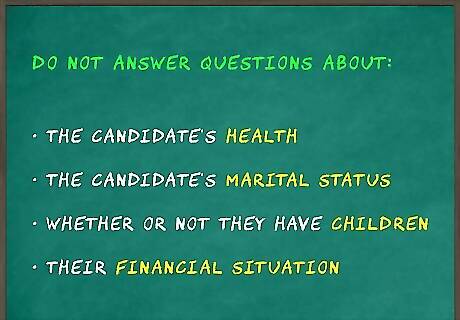
Do not answer inappropriate personal questions. Employers are prohibited from asking certain personal questions during job interviews and reference checks that may sway their decision unfairly. While a candidate may choose to answer such a question during their interview, you are not permitted to provide this information about them. Politely decline to answer any questions pertaining to: The candidate's health The candidate's marital status Whether or not the candidate has children The candidate's current financial situation
Providing a Character Reference
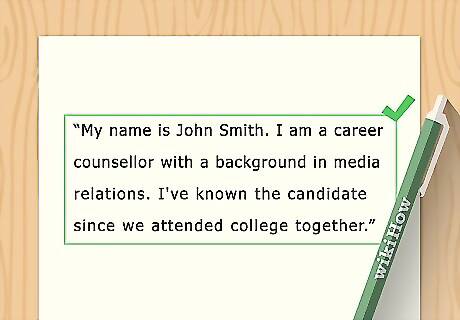
Introduce yourself to establish your own credibility. To offer a good character reference, you need to convince the person asking you questions that you are a reliable judge. Introduce yourself, then state what your profession is. List any other notable qualifications that you have. If it hasn't already been established, you should also provide some background about how you know the candidate. For instance, say something like, "My name is John Smith. I am a career counsellor with a background in media relations. I've known the candidate since we attended college together."

Emphasize that the individual is reliable. The primary goal of questioning a character reference is to determine how trustworthy they are. Be sure to state clearly that you consider the person you are vouching for reliable and responsible. Provide examples of how you or others have been able to rely on the individual in the past. For instance, mention a time when the individual has helped you in an emergency or offered assistance during a difficult time.
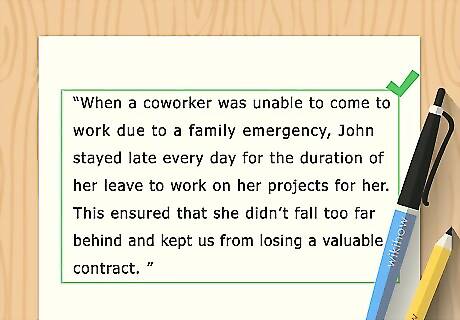
Highlight the individual's positive demeanor. Another goal of character reference checks is to determine if an individual is easy to get along with. Emphasize positive personality attributes like kindness, compassion, diplomacy, respectfulness, and generosity. Give examples of how the individual demonstrates these assets in their daily life.




















Comments
0 comment